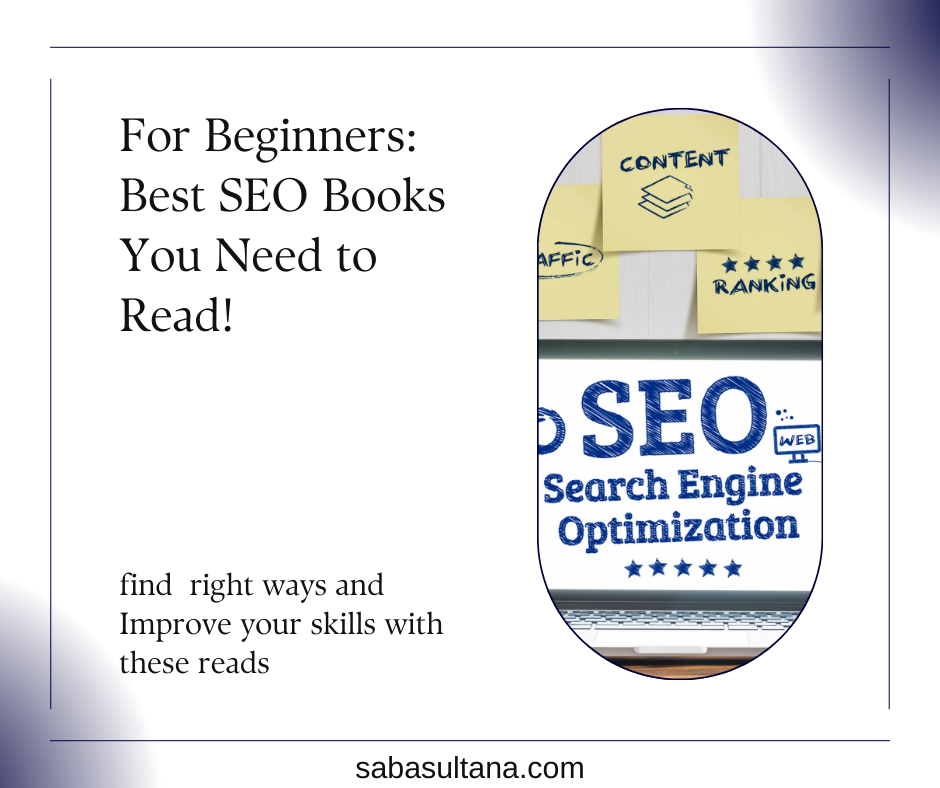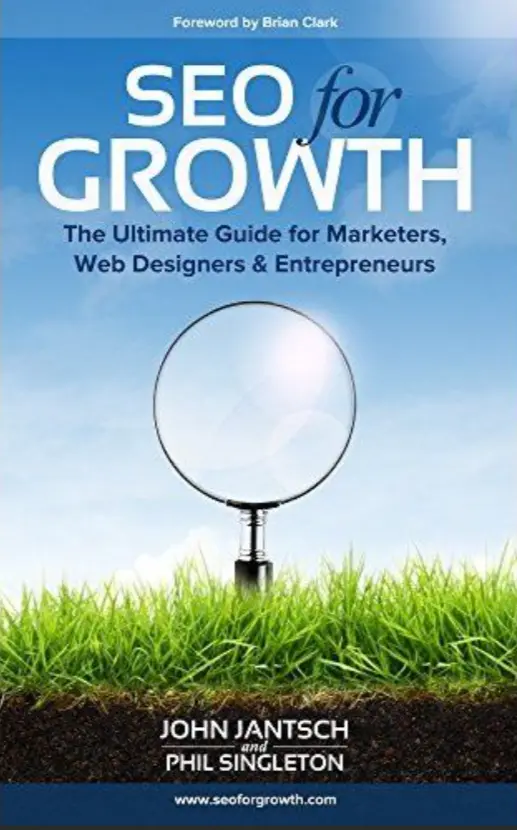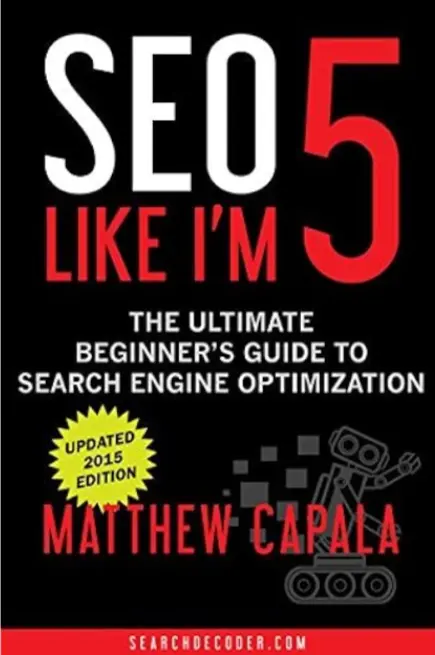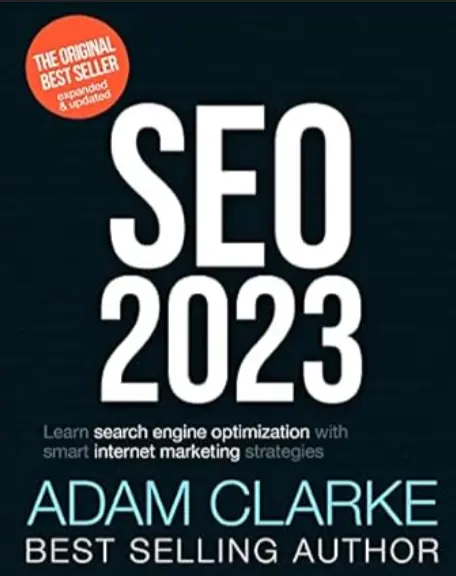
In the ever-evolving digital world, mastering Search Engine Optimization (SEO) has become a necessity for marketers, bloggers, and businesses aiming to gain a competitive edge online.
Best SEO books serve as lighthouses in the gloomy waters of search engine algorithms, guiding readers through tactics and strategies to improve website visibility, drive traffic, and enhance conversion rates.
This blog post delves into a comparative review of 8 Best SEO books for beginners,
Best SEO Books For Beginners:
Books are the mentors for everyone interested in learning SEO being a complete beginner. I picked 8 best SEO books for beginners which changed my SEO game.
1. The Art of SEO: Mastering Search Engine Optimization by Eric Enge
The Art of SEO stands as a cornerstone in the realm of digital marketing literature, offering an extensive exploration of the intricate world of search engine optimization. This book digs deep into the principles, tactics, and best practices that govern the ever-evolving landscape of SEO.
Whether you’re an experienced marketer or a beginner, this best SEO book for beginners provides invaluable insights into optimizing websites for search engines, driving organic traffic, and staying ahead of the curve in a dynamic online environment.

Pros:
- The book covers a wide range of SEO topics, including technical optimization, keyword research, and content strategy, providing readers with a holistic understanding of SEO principles.
- Co-authored by industry experts with years of experience in SEO, the book offers authoritative perspectives backed by real-world expertise.
- Actionable tips and strategies are spilled throughout the book, enabling them to implement effective SEO techniques and improve search engine rankings.
- Regular updates ensure that the book remains relevant in the face of changing algorithms and trends.
Cons:
- The sheer volume of information presented in the book may be overwhelming for beginners, requiring readers to invest time and effort in digesting the content.
- Despite efforts to keep the content updated, some sections of the book may feel outdated due to the rapid pace of change in the SEO landscape.
- The book may lack coverage of emerging trends such as voice search and mobile optimization, potentially leaving readers wanting more insight into these evolving areas.
- The dense prose and technical terminology used throughout the book may deter readers from seeking a more accessible introduction to SEO.
2. SEO for Growth: The Ultimate Guide for Marketers, Web Designers & Entrepreneurs by John Jantsch
With a focus on practicality and integration, this best SEO book provides readers with actionable advice on creating SEO-friendly websites, generating leads, and leveraging digital marketing channels for maximum impact.
Jantsch emphasizes the importance of aligning SEO efforts with overarching business objectives, making this SEO book essential reading for marketers, web designers, and entrepreneurs looking to harness the power of SEO to fuel their growth.

Pros:
- The book advocates for blending SEO into overall marketing strategies, offering a holistic approach to driving business growth online.
- Readers will find practical tips and strategies for creating SEO-friendly websites and content, making it easier to implement effective SEO techniques.
- Jantsch emphasizes the role of SEO in generating leads and driving revenue, demonstrating its direct impact on business success.
- The book provides actionable strategies for improving search engine rankings and increasing online visibility, making it a valuable resource for driving tangible results.
Cons:
- Some concepts may feel repetitive for readers already familiar with basic SEO principles, potentially detracting from the overall reading experience.
- The book may lack an in-depth analysis of advanced SEO techniques, leaving experienced marketers wanting more detailed insights.
- Jantsch’s focus on traditional marketing channels may overlook emerging trends such as voice search and artificial intelligence, potentially limiting the book’s relevance in a rapidly evolving landscape.
- While the book covers SEO from a strategic standpoint, it may lack coverage of technical aspects such as site architecture and page speed optimization, which are crucial for maximizing SEO performance.
3. The Ultimate Guide to Link Building: How to Build Backlinks, Authority, and Credibility for Your Website, and Increase Click Traffic and Search Ranking by Eric Ward and Garrett French
The book is Co-authored by link-building experts Eric Ward and Garrett French, this comprehensive guide offers a deep dive into the strategies and techniques necessary to enhance website authority and increase search engine rankings through effective link-building.
From understanding the importance of backlinks to executing outreach campaigns and earning valuable mentions from authoritative sources, this book provides invaluable insights into building a robust link profile that drives organic traffic and boosts online visibility.

Pros:
- The book offers a thorough exploration of link-building strategies, providing readers with a comprehensive understanding of the subject matter.
- Written by industry experts with extensive experience in link building, the book offers authoritative perspectives and actionable advice.
- Readers will find practical tips and strategies for acquiring backlinks from authoritative websites, enabling them to implement effective link-building campaigns.
- The inclusion of case studies and real-world examples helps illustrate effective link-building tactics and provides inspiration for readers looking to replicate success.
Cons:
- Some link-building strategies outlined in the book may be time-consuming or resource-intensive, requiring substantial investment from marketers.
- The book focuses solely on link building, with limited coverage of other aspects of SEO.
- The book may lack coverage of emerging trends such as influencer outreach and content syndication, potentially limiting its relevance in an evolving digital landscape.
- While the book provides theoretical insights into link-building principles, it could benefit from more visual aids to enhance understanding and illustrate complex concepts effectively.
4. SEO for Dummies by Peter Kent
The book serves as a comprehensive guide for beginners looking to understand the fundamentals of search engine optimization. It breaks down complex SEO concepts into easily digestible chunks, making it an ideal resource for those new to the world of digital marketing.
From keyword research and on-page optimization to link building and analytics, Kent covers all the essential aspects of SEO, providing readers with practical tips and actionable advice for improving website visibility and driving organic traffic.

Pros:
- The book uses clear and straightforward language, making it easy for beginners to grasp complex SEO concepts without feeling overwhelmed.
- Kent covers a wide range of SEO topics, ensuring that readers gain a thorough understanding of the subject matter.
- Readers will find practical tips and strategies throughout the book.
- The book offers step-by-step guidance on various SEO tasks, providing readers with a structured approach to optimizing their websites for search engines.
- Kent includes online resources and tools to supplement the book’s content, allowing readers to further explore topics of interest and apply their newfound knowledge.
Cons:
- The book primarily targets beginners, so readers with intermediate or advanced knowledge of SEO may find the content too elementary.
- Some topics are covered superficially, lacking the depth needed for readers seeking more advanced insights into SEO strategies and tactics.
- SEO is a rapidly evolving field, and some information in the book may become outdated over time, requiring readers to supplement their learning with additional resources.
- Advanced SEO techniques may not be adequately covered, leaving experienced marketers wanting more detailed insights into advanced strategies.
5. SEO Like I’m 5 by Matthew Capala
SEO Like I’m 5 by Matthew Capala is a beginner-friendly guide designed to demystify the complexities of search engine optimization (SEO) for newcomers to the field.
Through clear and concise language, Capala breaks down fundamental SEO concepts into easily understandable explanations, making them accessible to readers with varying levels of technical expertise.
From keyword research and on-page optimization to link building and content creation, this book covers all the essential aspects of SEO, providing readers with practical tips and actionable strategies to improve their website’s visibility and rankings on search engines.

Pros:
- The book covers a wide range of SEO topics, ensuring that readers gain a thorough understanding of the subject matter.
- Readers will find practical tips and strategies throughout the book, enabling them to implement effective SEO techniques and see tangible results.
- Capala includes real-world case studies and examples to illustrate how SEO strategies are applied in practice, providing valuable insights for readers.
- The book is structured in a user-friendly format with clear headings and bullet points, making it easy for readers to navigate and digest the information.
Cons:
- The book primarily targets beginners, so readers with intermediate or advanced knowledge of SEO may find the content too simplistic.
- Some topics are covered superficially, lacking the depth needed for readers seeking more advanced insights into SEO strategies and tactics.
- Some information in the book may become outdated over time, requiring readers to supplement their learning with additional resources.
- The book focuses more on high-level concepts and strategies, lacking in-depth technical explanations that some readers may desire.
- Advanced SEO techniques may not be adequately covered, leaving experienced marketers wanting more detailed insights into advanced strategies.
6. Keywords for SEO
The book is Authored by an expert in the field, this book provides diversified insights into the role of keywords in driving organic traffic and improving search engine rankings.
Through practical examples and actionable advice, readers will learn how to identify relevant keywords, optimize their website content, and develop effective SEO strategies tailored to their target audience.

Pros:
- The book covers all aspects of keyword research and optimization, from basic principles to advanced strategies.
- Readers will find practical examples and case studies throughout the book, illustrating how to apply keyword research techniques in real-world scenarios.
- The book offers actionable advice and step-by-step guidance on conducting keyword research, selecting the right keywords, and optimizing website content for improved search engine visibility.
- The author keeps the content updated to reflect changes in search engine algorithms and trends, ensuring readers have access to the latest information and best practices.
Cons:
- As the title suggests, the book primarily focuses on keywords for SEO, so readers seeking coverage of other aspects of SEO may need to supplement their learning with additional resources.
- Some topics covered in the book may overlap with other SEO guides, leading to repetition for readers familiar with basic SEO principles.
- Certain advanced keyword research techniques may be challenging for beginners to grasp, requiring additional time and effort to understand.
- While the book covers basic and intermediate keyword research techniques extensively, it may lack in-depth coverage of advanced strategies for seasoned SEO professionals.
7. SEO 2024: Learn Search Engine Optimization with Smart Internet Marketing Strategies by Adam Clarke
With a focus on staying ahead of the curve in the ever-evolving digital landscape, this book provides practical advice on leveraging smart Internet marketing strategies to improve search engine rankings and drive organic traffic.
From understanding the importance of user experience to implementing effective keyword research techniques, Clarke equips readers with the knowledge and tools necessary to succeed in SEO in the year 2024 and beyond.

Pros:
- The book provides insights into the latest SEO trends and strategies, ensuring readers have access to relevant and up-to-date information.
- Clarke offers practical advice and actionable strategies that readers can implement to improve their SEO efforts and achieve tangible results.
- Complex SEO concepts are explained in a clear and concise manner, making them accessible to readers of all levels of expertise.
- The inclusion of real-world case studies helps illustrate how the strategies discussed in the book are applied in practice.
- The book covers a wide range of SEO topics, from basic principles to advanced techniques, ensuring readers gain a holistic understanding of the subject matter.
Cons:
- Some advanced topics may be challenging for beginners to grasp, requiring additional time and effort to understand.
- While the book covers basic and intermediate SEO techniques extensively, it may lack in-depth coverage of advanced strategies for professionals.
- Some topics covered in the book may overlap with other SEO guides, leading to repetition for readers familiar with basic SEO principles.
- The book focuses primarily on SEO strategies for the year 2024, so readers seeking timeless SEO principles may need to supplement their learning with additional resources.
8. SEO Made Easy: Everything You Need to Know About SEO and Nothing More by Evan Bailyn
Designed for beginners and small business owners, this book provides a comprehensive yet simplified overview of SEO principles and strategies.
Bailyn focuses on the essentials, stripping away unnecessary complexities to offer readers a clear and accessible roadmap to improving their website’s visibility on search engines.

Pros:
- The book is beginner-friendly, offering a gentle introduction to SEO principles without overwhelming readers with technical jargon.
- Bailyn provides practical advice and actionable tips that readers can immediately implement to improve their website’s search engine rankings.
- The book focuses solely on essential SEO techniques, avoiding unnecessary distractions and providing readers with a streamlined learning experience.
- Bailyn presents the content in an engaging format, using real-world examples and case studies to illustrate key concepts and keep readers interested.
Cons:
- Some topics may lack depth, leaving readers wanting more detailed insights into advanced SEO strategies and tactics.
- The book may not provide enough technical detail for readers seeking a deeper understanding of the underlying mechanisms behind SEO.
- Bailyn primarily focuses on traditional SEO techniques, potentially overlooking emerging trends such as voice search and mobile optimization.
- Some topics covered in the book may overlap with other SEO guides, leading to repetition for readers familiar with basic SEO principles.
- The book could benefit from more coverage of SEO analytics and tracking tools, helping readers measure the effectiveness of their SEO efforts and make data-driven decisions.
Conclusion
Choosing the Best SEO books for beginners depends largely on your current level of expertise and specific needs. All the above-mentioned Best SEO books have their merits and drawbacks, highlighting the importance of continuous learning and adaptation in the field of SEO.
Whether you’re starting your SEO journey or looking to elevate your existing knowledge, these SEO books provide valuable insights and strategies to navigate the complexities of search engine optimization and achieve online success.
Also, read our Books on Digital Marketing blog to enhance your marketing skills

